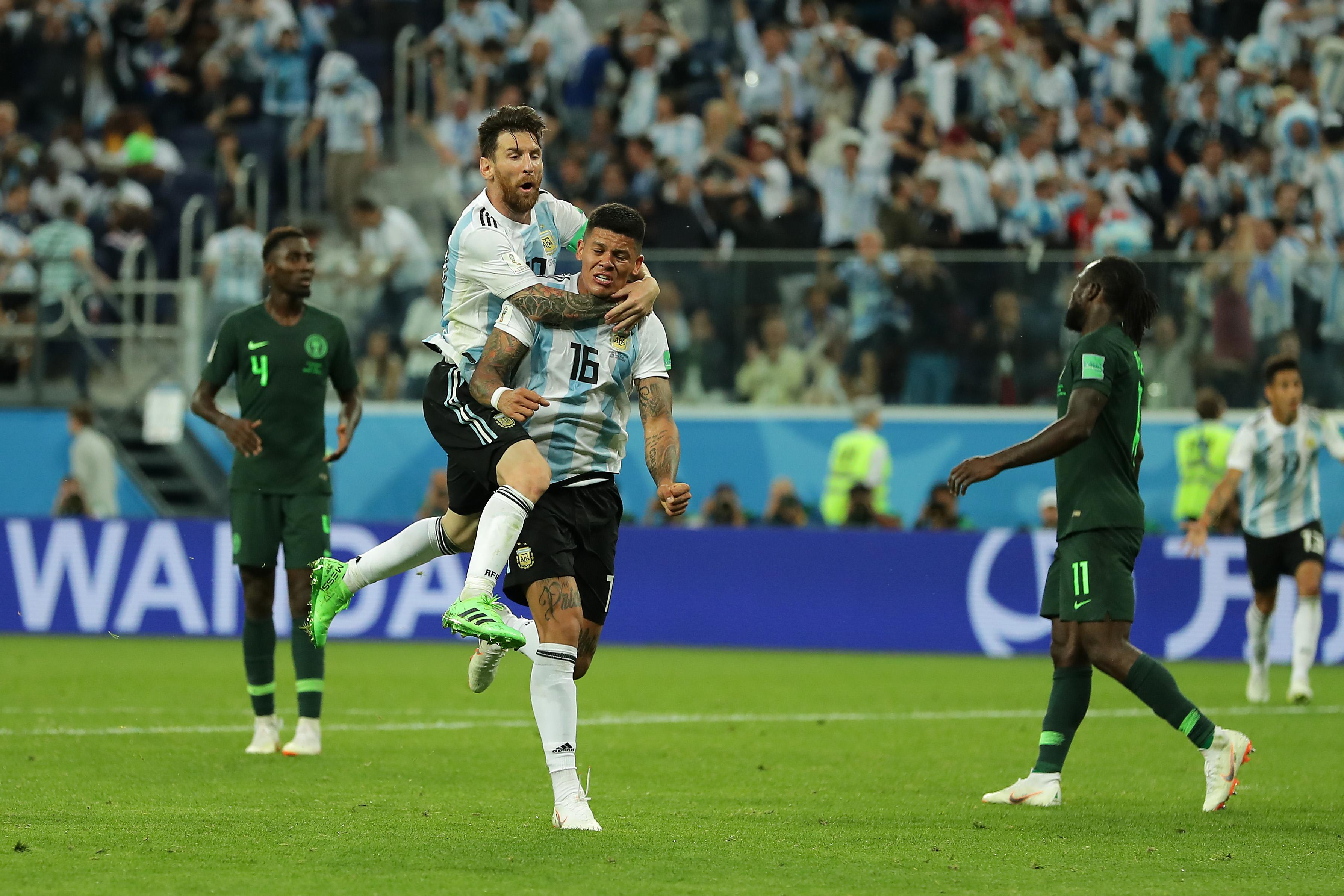With time running out and his team on the brink of group-stage elimination, everyone in the world knew there was only one man Argentina could count on to find the winner against Nigeria.
Yes, Marcos Rojo, the versatile defender who made nine Premier League appearances for Manchester United this season. Scorer of four goals in the last four years for club and country. Perhaps the last person you might expect to save his country by scoring a late goal, other than Argentina forward and chronic international choker Gonzalo Higuain. Rojo’s claim, made in an interview after the game, that he told his teammates he was going to score is either a sign of a healthy, functioning ego or grounds for a psychiatric evaluation, even considering that one of those four goals in the last four years was the winner against Nigeria in the 2014 World Cup.
Argentina’s 2–1 win over Nigeria this time around is proof of the weakness of viewing sports through the prism of narrative. Here, “Messi saves Argentina” (1–0) becomes “Even Messi isn’t good enough to redeem this team” (1-1) becomes “Marcos Rojo? Marcos Rojo!” (2-1). The world was prepared for Messi to burnish his legacy and for Messi to be dragged under by the millstone of his teammates. The world doesn’t quite know what to do with Marcos Rojo, national hero. Diego Maradona certainly didn’t, judging by his reaction of firing off double birds and dropping homophobic slurs.
Another way to look at it: All Argentina needed to right the ship was a match-up against its own personal Washington Generals. Argentina and Nigeria have met in the group stage of five of the last seven World Cups; Nigeria has not won or even drawn any of those games. The Super Eagles have essentially started all but one of the World Cups they’ve qualified for in a three-point hole. They’ve advanced to the knockout round multiple times and even won their group in 1994, but they still lost to Argentina. This time, they lost again, and they’re going home after finishing third in Group D.
If Nigeria was ever going to break its winless streak, this would have been the year. Argentina was reeling entering this game, earning just one point from its first two matches, an opening draw against Iceland. They had scored just one goal. Messi looked to be struggling in a system designed to accommodate him, like a man so used to tooling around in his automatic at Barcelona that he’d forgotten how to drive a stick when playing with Argentina. The team around him ground its gears on offense as players struggled to make collective decisions. The federation gave head coach Jorge Sampaoli a self-defeating vote of confidence ahead of the game, announcing in a press conference that it wouldn’t be firing him.
Argentina looked better Tuesday, but maybe only because there was nowhere to go but up. Messi has spent much of this World Cup treating the highlight of the soccer calendar like a summer camp he can’t believe his parents have sent him to, but here he finally produced one of the customary moments of magic the world had been waiting for.
To trap that pass on the run with your thigh AND keep it close enough that a defender can’t intervene AND land it onto your foot in stride so you can create separation with your second touch AND launch a precision shot with your off foot into the far corner of the goal is a feat of technical precision akin to landing the Apollo Lunar Module.
But one goal was never going to be enough. Even with goalkeeper Willy “Double Agent” Caballero replaced by River Plate’s Franco Armani, the Argentine defense has been too easy to break down this tournament. Sampaoli has tried to find a balance between playing his preferred style and catering to his core, but the effect has been to split the baby, leaving his team confused and disjointed. Nigeria could have opened the scoring on an early mistake by Javier Mascherano, who underhit a backpass and let Nigeria intercept, and it was his wrestling hold on a corner kick that earned Nigeria the penalty from which it scored the equalizer.
Mascherano is in many ways emblematic of one of Argentina’s biggest problems: a reluctance to move on from an aging, fading core. Even with his team desperate for a goal in the closing stages of the match, Sampaoli decided against bringing on 24-year-old Paulo Dybala, who scored 26 goals in all competitions for Juventus this season. Just three of Argentina’s starters Tuesday were under the age of 30. It’s likely that only three members of the France team it will face in the Round of 16 will be over 30.
France will be favored, and the narrative ahead of Saturday’s match will likely center on how its young, speedy players will tear through the aging Argentina team. Luckily, Argentina has a guy who has the ability to flip that script with a single brilliant play. You know the one.
